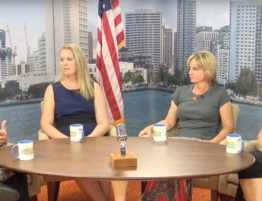Most homeowners have heard of umbrella insurance. Sometimes it is offered as an add-on to an automobile insurance policy. But, how many individuals purchase umbrella insurance? Not enough.
If one of my clients is involved in a fatal car accident where they survive but the other driver does not, umbrella insurance may come into play. If my client’s auto insurance only covers $500,000 in damages, and my client is sued by the surviving family of the deceased, they could have exposure. If the suit prevails and my client is obligated to pay $1.2 million in damages, meaning my client will be on the hook for the $700,000 their insurance has not been able to cover. This most likely will be taken from the equity in their home, or from hard-earned retirement savings.
Then again, how likely is it to be sued, to be at fault within the suit, and for damages to exceed the coverage purchased already through insurance? Those are all fair inquiries and part of the risk-reward analysis undertaken before buying an insurance policy. However, most homeowners can bundle an additional umbrella insurance policy covering $1-5 million for as little as $15/month. I advise most of my clients who do not have umbrella insurance to get a few quotes and assess the cost versus the peace of mind it can provide.
Sometimes, as we discuss this exposure, my clients will ask why they do not just put their home or life insurance and other accounts into an Irrevocable Life Insurance Trust (ILIT). Similar trusts, which can insulate from creditors, are called Spend Thrift Trusts, Generation Skipping Trusts, and Charitable Remainder Trusts. These niche irrevocable trusts assign the interest in the home, or the life insurance, to someone other than the home owners or life insurance policy holders. The asset, once in the irrevocable trust, is no longer owned and managed by the original possessor. The asset is forever earmarked for some future person’s enjoyment like grandchildren or a charity. Because the asset is no longer truly owned by the homeowner, it is not subject to creditor claims against the homeowner/policy holder.
Why do I still recommend umbrella insurance and not just putting all significant assets into an irrevocable trust? The name says it all: IR-revocable. Not able to be revoked, canceled or altered. Ever. Never-ever. Once the home or life insurance is put into an irrevocable trust, the value can never be withdrawn by the original owner. At best, the asset can be “decanted” or shuffled into a different kind of irrevocable trust, but the value will never be able to be enjoyed by the first owner. For families who have four or more properties, perhaps their fifth property can be set aside for grandchildren, and thus it cannot be attached in a lawsuit, but this is not an appropriate plan for families with just one home. But even in this instance, groupings of real estate can be put into an LLC or incorporated which also greatly decreases exposure to creditor claims.
Finally, just as with creditor claims, standard revocable living trusts do not insulate the trust-holders from the IRS. The revocable trust is solely meant to sidestep the involvement of California’s probate court from having to make distributions to beneficiaries. Revocable trusts are all about probate court avoidance, which is another blog entry in itself. To conclude, I hope next time you hear someone say, “Don’t trusts save taxes?” you yell, “No, go talk to Anna!”


















